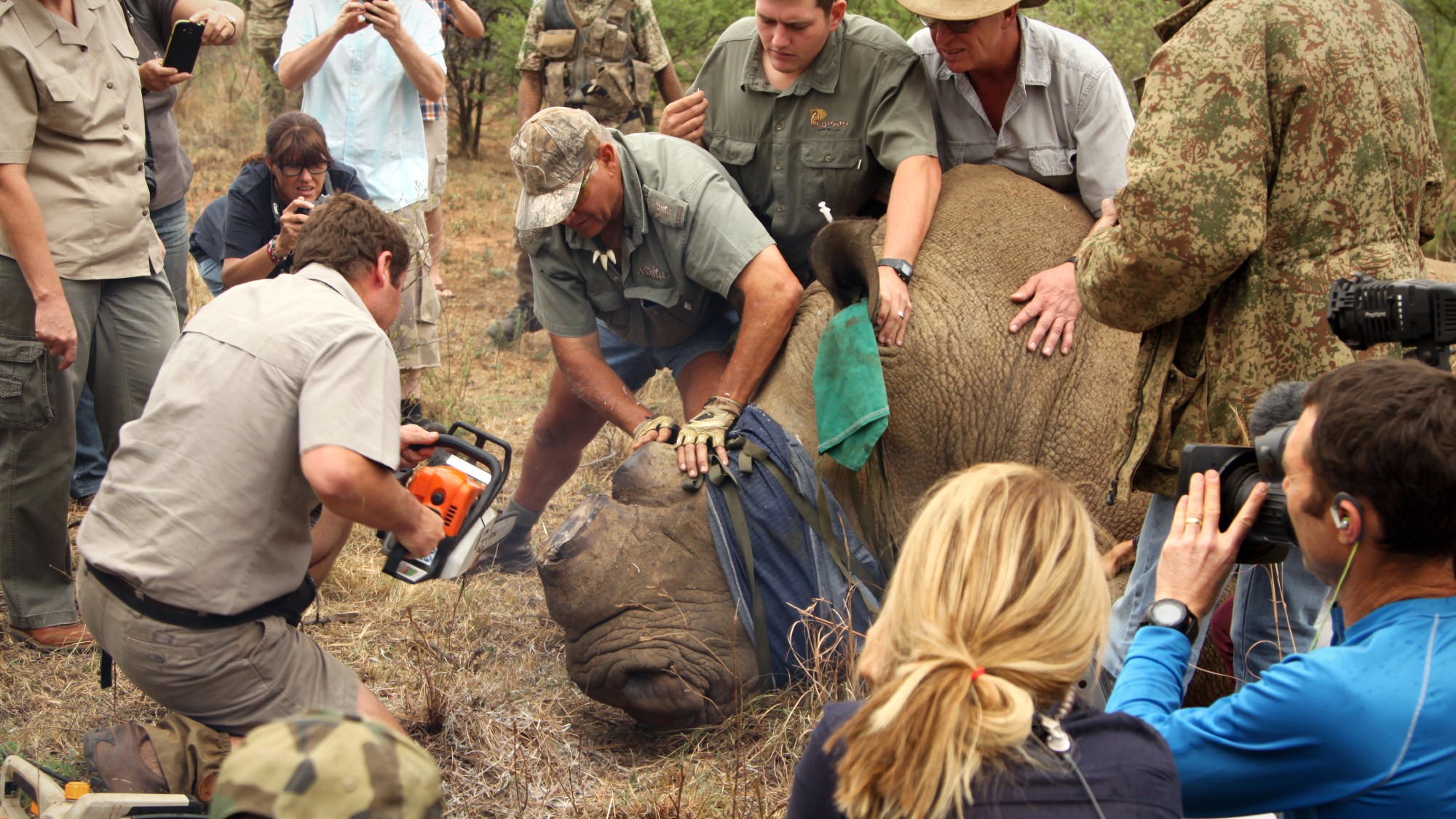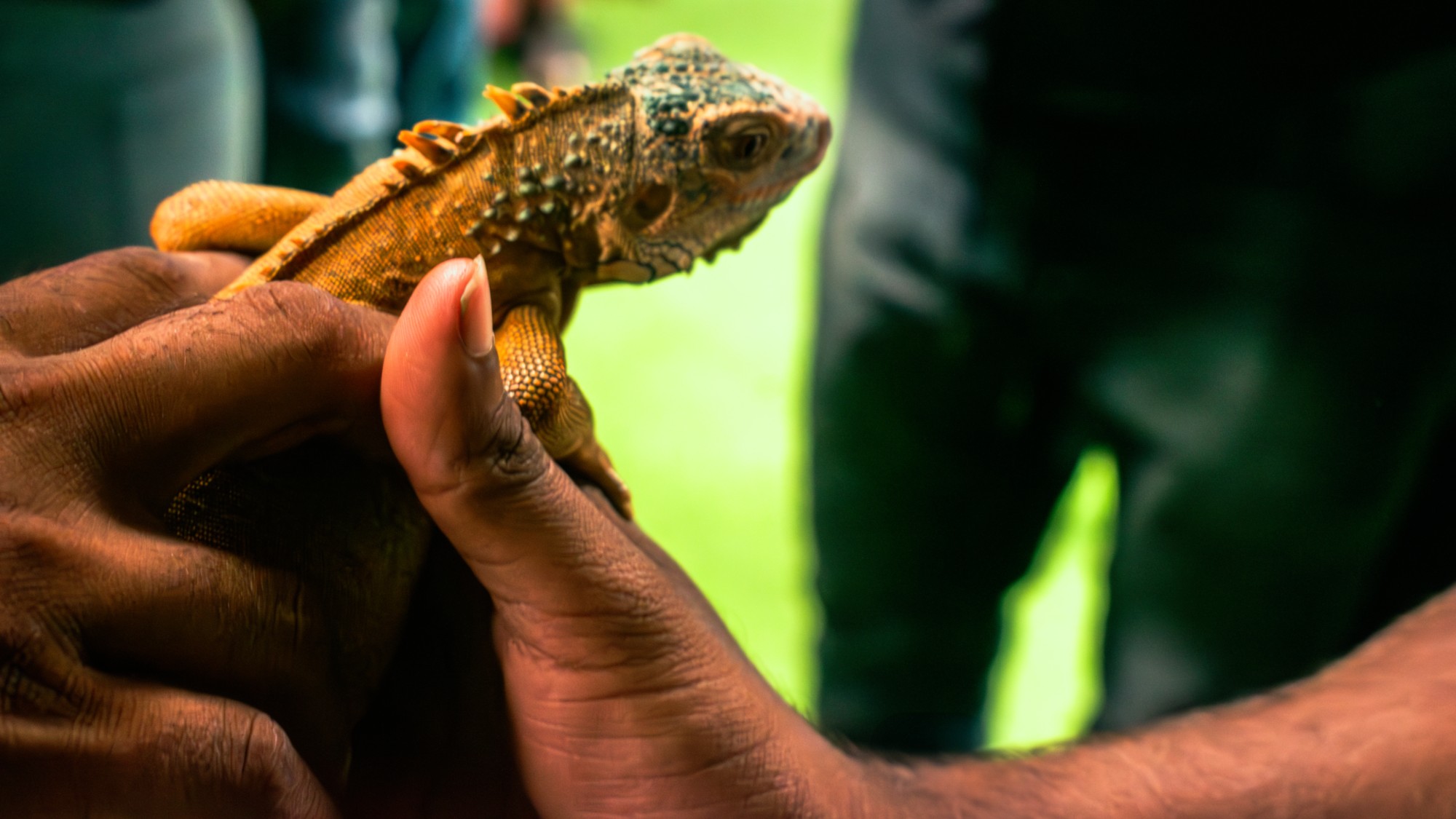Dehorning rhinos sharply cuts poaching, study finds
The painless procedure may be an effective way to reduce the widespread poaching of rhinoceroses


A free daily email with the biggest news stories of the day – and the best features from TheWeek.com
You are now subscribed
Your newsletter sign-up was successful
What happened
The most effective way of reducing the widespread poaching of rhinoceroses is cutting off their horns, conservationists and researchers reported Thursday in the journal Science. The study, covering seven years at 11 nature reserves in Southern Africa, found that dehorning reduced rhino poaching by 78% while other, more expensive efforts had no measurable impact.
Who said what
Rhino horns fetch tens of thousands of dollars in Asia, where they are "falsely believed to be effective at treating fevers, pain and a low sex drive in traditional medicine," said The Guardian. Dehorning rhinos — sedating the animals and cutting off their keratin horns with a chainsaw — is believed to be painless and has been used to combat poaching in Africa for decades. But until this study, there wasn't much hard data on whether it works.
Some previous studies have found that dehorning makes critically endangered black rhinos more timid and reduces their home range, but it doesn't have an adverse effect on rhino breeding or mortality rates. "It is a big part of what a rhino is, having a horn," Tim Kuiper, a biodiversity scientist at South Africa's Nelson Mandela University who led the new study, said to The Associated Press. "So having to remove it is kind of a necessary evil, if I can put it that way. But it's very effective. There's no doubt it saved hundreds of rhinos' lives."
The Week
Escape your echo chamber. Get the facts behind the news, plus analysis from multiple perspectives.

Sign up for The Week's Free Newsletters
From our morning news briefing to a weekly Good News Newsletter, get the best of The Week delivered directly to your inbox.
From our morning news briefing to a weekly Good News Newsletter, get the best of The Week delivered directly to your inbox.
What next?
Some poachers still kill rhinos for stubs or partially regrown horns, and "dehorning is not a long-term solution" or a "silver bullet," Kuiper said. But "it's a small thing that can be done to hopefully buy time for the broader work that needs to happen."
A free daily email with the biggest news stories of the day – and the best features from TheWeek.com
Peter has worked as a news and culture writer and editor at The Week since the site's launch in 2008. He covers politics, world affairs, religion and cultural currents. His journalism career began as a copy editor at a financial newswire and has included editorial positions at The New York Times Magazine, Facts on File, and Oregon State University.
-
 Political cartoons for February 19
Political cartoons for February 19Cartoons Thursday’s political cartoons include a suspicious package, a piece of the cake, and more
-
 The Gallivant: style and charm steps from Camber Sands
The Gallivant: style and charm steps from Camber SandsThe Week Recommends Nestled behind the dunes, this luxury hotel is a great place to hunker down and get cosy
-
 The President’s Cake: ‘sweet tragedy’ about a little girl on a baking mission in Iraq
The President’s Cake: ‘sweet tragedy’ about a little girl on a baking mission in IraqThe Week Recommends Charming debut from Hasan Hadi is filled with ‘vivid characters’
-
 Russia’s ‘cyborg’ spy pigeons
Russia’s ‘cyborg’ spy pigeonsUnder the Radar Moscow neurotech company with Kremlin-linked funding claims to implant neural chips in birds’ brains to control their flight, and create ‘bio-drones’
-
 How roadkill is a surprising boon to scientific research
How roadkill is a surprising boon to scientific researchUnder the radar We can learn from animals without trapping and capturing them
-
 The ocean is getting more acidic — and harming sharks’ teeth
The ocean is getting more acidic — and harming sharks’ teethUnder the Radar ‘There is a corrosion effect on sharks’ teeth,’ the study’s author said
-
 Cows can use tools, scientists report
Cows can use tools, scientists reportSpeed Read The discovery builds on Jane Goodall’s research from the 1960s
-
 Blue Origin launches Mars probes in NASA debut
Blue Origin launches Mars probes in NASA debutSpeed Read The New Glenn rocket is carrying small twin spacecraft toward Mars as part of NASA’s Escapade mission
-
 Dinosaurs were thriving before asteroid, study finds
Dinosaurs were thriving before asteroid, study findsSpeed Read The dinosaurs would not have gone extinct if not for the asteroid
-
 Parthenogenesis: the miracle of 'virgin births' in the animal kingdom
Parthenogenesis: the miracle of 'virgin births' in the animal kingdomThe Explainer Asexual reproduction, in which females reproduce without males by cloning themselves, has been documented in multiple species
-
 SpaceX breaks Starship losing streak in 10th test
SpaceX breaks Starship losing streak in 10th testspeed read The Starship rocket's test flight was largely successful, deploying eight dummy satellites during its hour in space
